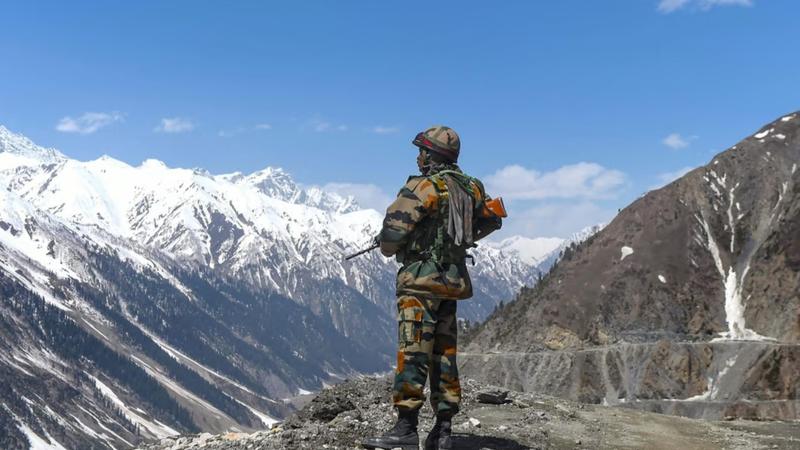Published 11:57 IST, October 1st 2024
Situation Not Normal, it's Sensitive: Army Chief on India-China Border Standoff
Indian Army Chief on Tuesday, said the situation with China is "stable". However, he added the situation is not "normal" and dubbed it "sensitive".

New Delhi: The situation along the Line of Actual Control (LAC) in eastern Ladakh is stable but sensitive and not normal, Chief of Army Staff Gen Upendra Dwivedi said on Tuesday regarding the ongoing military standoff between China and India in the region.
Gen Dwivedi added that while there is "positive signalling" emerging from diplomatic talks aimed at resolving the dispute, the implementation of any agreements relies on military commanders on the ground. He said, "The situation is stable, but it's not normal and it's sensitive. We want the situation that was before April 2020 to be restored." He was speaking at a curtain raiser event on the Chanakya Defence Dialogue.
Currently, Indian and Chinese troops are in a standoff at several friction points in eastern Ladakh. Although both sides have disengaged from various areas following extensive diplomatic and military discussions, India asserts that its relationship with China cannot normalize without peace in the border regions.
In July and August, India and China conducted two rounds of diplomatic talks aimed at finding an early resolution to the outstanding issues related to their standoff along the LAC in eastern Ladakh. "The positive signalling is coming from the diplomatic side, but what we need to understand (is that) the diplomatic side gives options and possibilities," he said.
"But when it comes to the execution on ground, when it relates to ground per se; it is dependent on the military commanders on both sides to take those decisions," the Army Chief said, responding to a question.
"The situation is stable, but it is not normal and it's sensitive. If that be the case what are we wanting ? We are wanting that the situation that was there pre April 2020 should be restored," he added.
The military standoff between the two sides began in early May of 2020. Full resolution of the border row has not yet been achieved though the two sides have disengaged from a number of friction points.
"Till the time the situation is not restored, as far as we are concerned, the situation will remain sensitive, and we are fully operationally prepared to face any kind of a contingency," the Army Chief said.
In the complete gamut, the trust has become the "biggest casualty", he added.
Gen Dwivedi also briefly touched upon the Indian military's overall approach towards China. "As far as China is concerned, it has been intriguing our minds for quite some time. And I have been saying that with China, you have to compete, you have to cooperate, you have to coexist, you have to confront and contest," he said.
Last month, National Security Advisor Ajit Doval and Chinese Foreign Minister Wang Yi held talks in the Russian city of St Petersburg with a focus on finding an early resolution to the row. In the talks held on the sidelines of a conclave of BRICS (Brazil-Russia-India-China-South Africa) nations, the two sides agreed to work with "urgency" and "redouble" efforts to achieve complete disengagement in remaining friction points in eastern Ladakh.
In the meeting, NSA Doval conveyed to Wang that peace and tranquility in border areas and respect for the LAC are essential for return of normalcy in bilateral ties.
The ties between the two countries nosedived significantly following the fierce clash in the Galwan Valley in June 2020 that marked the most serious military conflict between the two sides in decades.
India has been maintaining that its ties with China cannot be normal unless there is peace in the border areas. The two sides have so far held 21 rounds of Corps Commander-level talks to resolve the standoff.
India has been pressing the People's Liberation Army (PLA) to disengage from the Depsang and Demchok areas.The two sides held the last round of high-level military talks in February.
Updated 13:11 IST, October 1st 2024




